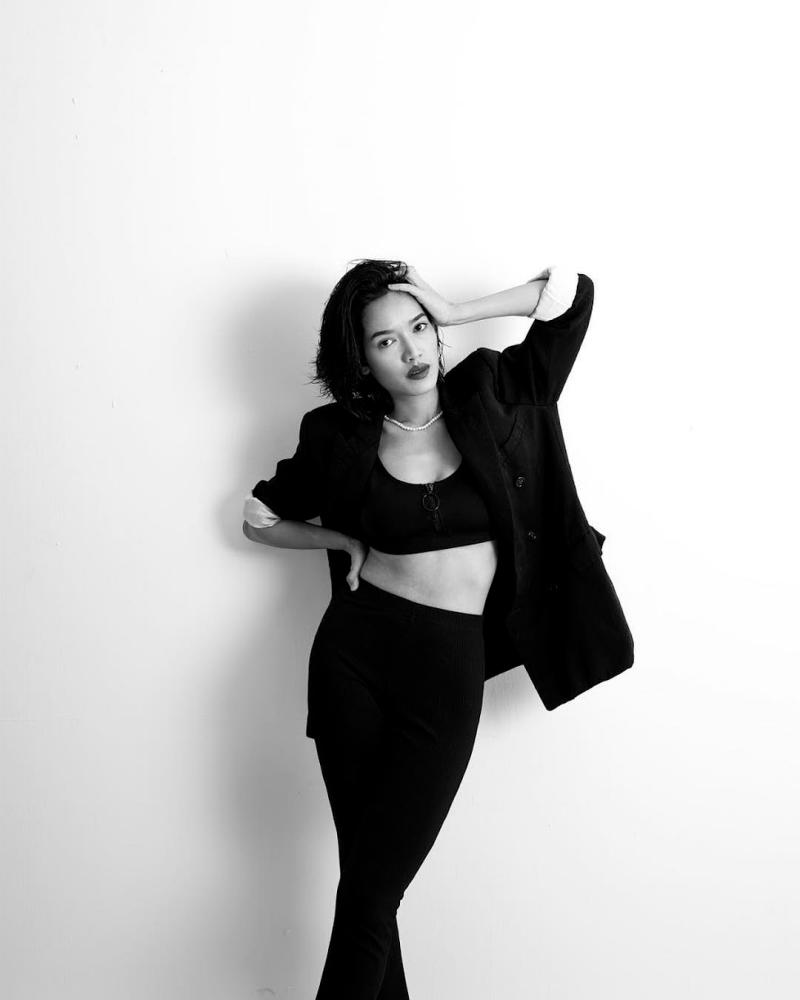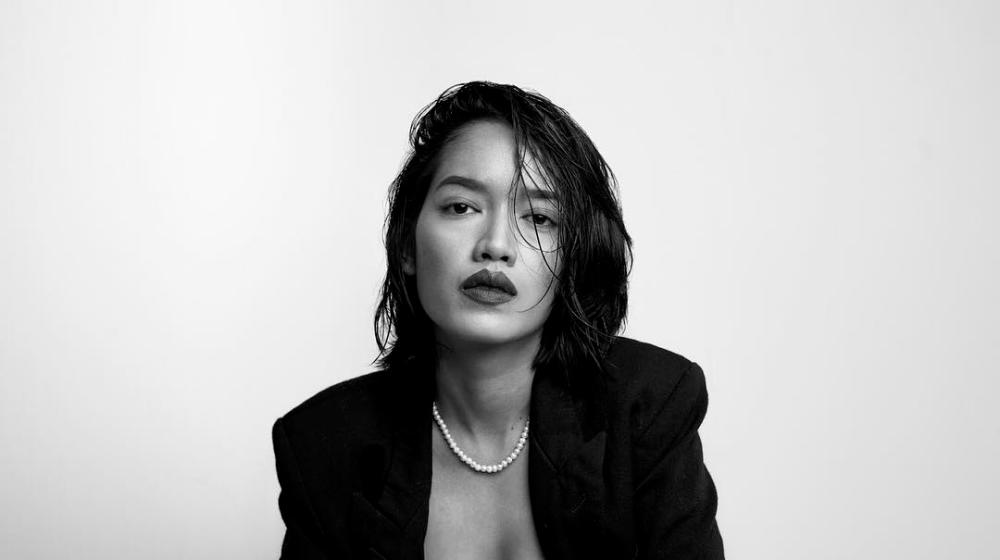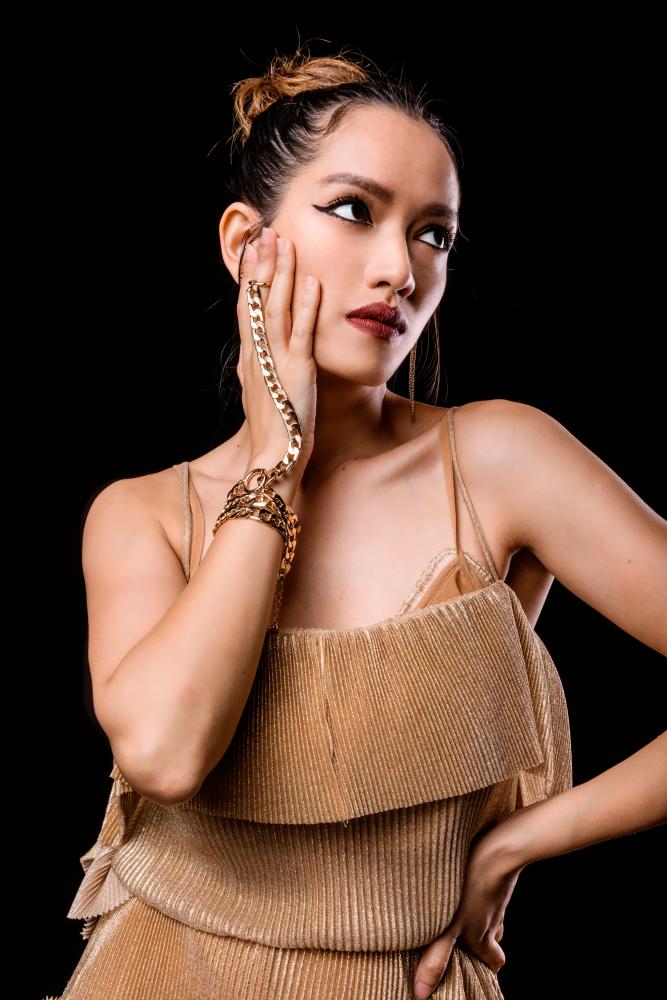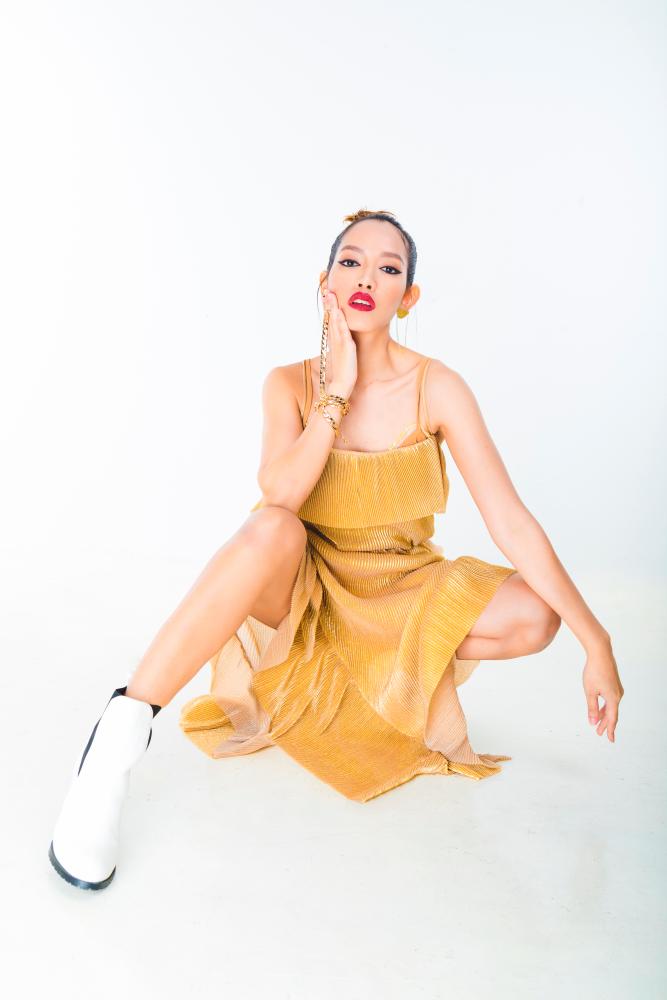IN MAY last year, multitalented rapper Sya – part spoken word artiste, part travel writer, part R&B diva – became the first female artiste signed to Def Jam Southeast Asia. Six months later, she released her debut single PrettyGirlBop, produced by SonaOne and featuring Singaporean rapper Yung Raja.
But before entering the milieu, Sya had long been quietly writing spoken word poems and songs within her bedroom walls, which she never revealed to anyone except her close friend, Pola.
It was not until Pola recognised the potential in those written verses that Sya decided to give rapping a shot and posted her first freestyle video, KIKA, in January 2019 and quickly grabbed the attention of Joe Flizzow, SonaOne and NJWA.
“Growing up, I listened to more pop than hip-hop, and I was heavily into Michael Jackson and Britney Spears,” she said.
“Then later, I started listening to Beyonce, Missy Elliot and other similar artistes, but what really got me into hip-hop was Kanye West’s Gold Digger, that has left an imprint on me.”

How would you describe your writing and music style?
I never really liked to box myself in when it comes to music genres, but I definitely lean more towards R&B, hip-hop and sometimes, pop influences. As I get older and exposed to different cultures and influences, it also plays a part in how I write and make music.
For me, I love travelling and I would love to “live” in the moment as well. From the people I meet to personal experiences, everything and anything, I try to feel it as much as I can, because writing it out makes me feel more human and connected. With songwriting, it just adds more power to the words you are saying.
Your debut single PrettyGirlBop with Yung Raja is an empowering one, about reconstructing stigma and reclaiming identity as women. Tell us more about it.
I have always considered PrettyGirlBop my little sweet serendipity because it came at a time of my life when I felt fully confident as a woman and it was made unexpectedly as well.
This pandemic definitely challenged me on all aspects – financial, emotional, spiritual and more. So when PrettyGirlBop was made, it was at a time I finally felt that I slowly found my footing and voice in this world. Together with all my personal experiences, of course.
You mentioned that the song was also inspired by women like your late mother. What was she like?
She was the reason I was inspired to stay strong, especially through difficult times during this pandemic. After her passing, I was on my own a lot, but I had huge support from my friends who guided me through my struggles and uplifted me. She and I had a lot of things in common, from fashion to especially music. She had very good taste in music. She knew exactly what suited me. She has certainly influenced how I make music today.
Do you think there is a certain barrier that holds back the local hip-hop scene from realising its full potential?
As cliche as it sounds, being a woman in the rap industry, is initially some form of a barrier. But now, with a strong female figure such as local rapper Zamaera breaking the glass ceiling, the audience has been very open to what we have to say.
Within Malaysia, religion and race play a part as well. People need to realise that if they impose these biases against women, they should do the same for male rappers as well.
What makes a good rap artiste?
Being real, being honest and just having a good understanding of yourself and things around you. The essence of a rapper is not only in what he or she writes, but also how he or she conveys or delivers those messages.
It is not enough to have dope lyrics but to be able to carry the energy, let it be songs about toxic men or women empowering themselves. If you’re going to rap about soup, make it a good one to get people hungry.
Have you ever doubted yourself on how far you could go as an artiste?
All the time! I have a huge imposter syndrome which is a form of self-gaslighting. You deny your achievements no matter how huge or good they are because you think you are just “lucky”, and you fear that at some point, someone would catch you and call you out on it.
After much reflection and making a conscious effort to appreciate and love myself better, that part of me has become less and less. Now, I have learned to trust that there is a reason I am here, surrounded by supportive people whose opinions matter to me.











